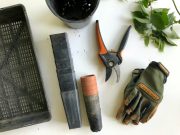Metal Detecting
Metal detecting has become an increasingly popular hobby in recent years, and for a good reason. Not only is it an enjoyable way to spend time outdoors, but it can also lead to uncovering fascinating pieces of history. From ancient coins and artifacts to buried treasures and relics from World War II, metal detecting has the potential to unearth a wide range of historical objects.
You may wonder how to get started if you’re new to metal detecting. There are several key factors to consider, including choosing the right equipment, learning how to use it effectively, and finding good locations to search. In this blog post, we’ll take a closer look at each of these elements and provide some tips to help you get started on your own metal-detecting journey.
Whether you’re interested in uncovering artifacts from a particular time period or want to explore the great outdoors while pursuing a new hobby, metal detecting can be a fun and rewarding pursuit. With some knowledge and preparation, you can start unearthing history and discovering hidden treasures in no time.
Benefits of Metal Detecting
Metal detecting is a hobby that has been around for decades, and its popularity has only grown recently. While some people may think of it as a simple pastime, metal detecting actually offers a range of benefits beyond just finding treasure. In this blog post, we’ll explore some of the top benefits of metal detecting.
- Outdoor Activity and Exercise Metal detecting is a great way to get outdoors and enjoy some fresh air and exercise. Whether you’re searching for treasure on a beach or exploring a historic site, metal detecting involves walking and moving around, which can help improve your physical health and well-being.
- Historical Exploration One of the fascinating aspects of metal detecting is the opportunity to explore historical sites and uncover hidden artifacts. From old coins and buttons to antique jewelry and military relics, metal detecting can provide a window into the past and help us better understand the people and events that shaped our history.
- Mental Stimulation Metal detecting requires focus, concentration, and problem-solving skills. As you search for treasure, you’ll need to analyze signals from your metal detector and determine whether they indicate something of value or just a piece of junk. This mental stimulation can help improve cognitive function and keep your mind sharp.
- Bonding with Others Metal detecting can also be a social activity, whether you join a local club or search for treasure with friends or family members. Sharing the excitement of finding a hidden treasure or exploring a new site can help strengthen relationships and create lasting memories.
- Potential for Profit While the odds of finding a valuable treasure may be slim, metal detecting does offer the potential for financial gain. Some treasure hunters have uncovered valuable coins, jewelry, and other items that can be sold for a profit.
In conclusion, metal detecting is a hobby offering many benefits beyond just finding treasure. From getting exercise and exploring historical sites to improving cognitive function and bonding with others, there are many reasons to try metal detecting. So grab your metal detector and get ready to uncover the history and hidden treasures!
What You Need to Get Started
If you’re interested in metal detecting, you may be wondering what equipment you’ll need to get started. While many different types of metal detectors and accessories are available, the following are the basic items you’ll need to begin your treasure-hunting journey.
- Metal Detector: The most crucial equipment you’ll need is a metal detector. Many different types of metal detectors are available, each with its own features and capabilities. Some are designed for specific types of terrain or treasure hunting, such as beach detecting or relic hunting. Consider your needs and preferences when choosing a metal detector.
- Headphones: A good pair of headphones is essential for metal detecting. Not only will they help you hear faint signals from your metal detector, but they’ll also help block out external noise and distractions.
- Digging Tool: You’ll also need a digging tool to excavate your finds. A handheld tool such as a trowel or knife is ideal for digging small holes and retrieving targets.
- Pouch or Bag: A pouch or bag to carry your finds is also essential. A pouch worn around your waist or a backpack is ideal for carrying your metal detector, digging tool, headphones, and any treasures you uncover.
- Batteries: Make sure you have plenty of batteries for your metal detector, headphones, and any other required accessories.
- Protective Gear: Protective gear such as gloves, a hat, and sunscreen are also recommended to protect you from the sun and any sharp objects you may encounter while digging.
- Research Materials: Before you head out on your metal-detecting adventure, make sure to do some research on potential treasure-hunting locations. Maps, historical records, and online resources can help identify potential hot spots.
In conclusion, these are the basic items you’ll need to get started with metal detecting. While many other accessories and gadgets are available, these essentials will help you get started on your journey to uncovering hidden treasures and exploring the past.
Finding a Location to Search
Finding the right location to search is key to a successful metal-detecting adventure. While many places may seem promising, not all locations are created equal. Here are some tips for finding a location to search.
- Research Online The internet is a great resource for finding potential treasure-hunting locations. Search for historical sites, abandoned towns, and areas with a history of high traffic, such as old fairgrounds and parks. There are also online forums and communities dedicated to metal detecting that can provide tips and advice on good locations to search.
- Check Local Laws Before heading out to a location, it’s important to check local laws and regulations regarding metal detecting. Some areas may require permits or restrict where metal detecting is allowed. Respecting private property and obtaining permission before searching on someone else’s land is also important.
- Explore Natural Features Natural features such as beaches, parks, and hiking trails can be great locations for metal detecting. Look for areas where people gather, such as picnic areas, swimming holes, and playgrounds. These areas are more likely to have lost items and hidden treasures.
- Consider Historical Sites Historical sites such as old battlefields, ghost towns, and abandoned buildings can be fascinating locations to explore with a metal detector. Check with local historical societies or museums for information on sites open to metal detection.
- Use Your Imagination Sometimes the best locations to search are the ones you discover independently. Take a walk around your neighborhood, local park, or beach, and look for areas that may have hidden treasures. Use your imagination and think about where people may have lost items or discarded old objects.
In conclusion, finding a location to search can be an exciting part of the metal-detecting adventure. With some research and creativity, you can discover hidden treasures and explore the past in new and exciting ways. Just remember always to respect the laws and regulations in your area and the property of others.
Researching Local History
Metal detecting is not just about wandering around aimlessly with a metal detector. To become a successful treasure hunter, you need to deeply understand the history of the area you want to explore. Researching local history is an essential part of metal detecting. It can help you identify potential hot spots for treasure hunting, better understand what you may find, and help make informed decisions about where to focus your search.
Here are some tips for researching local history:
- Visit Local Libraries and Museums Local libraries and museums are great resources for historical information. They often have archives of newspapers, historical documents, and photographs that can provide insight into the past. Ask the librarians or museum staff if they have any resources or materials on the history of the area you want to explore.
- Talk to Locals Talking to locals is another way to learn about the history of an area. Ask people who have lived in the area for a long time if they know of any historical sites or events that may have occurred in the past. They may be able to provide valuable information or direct you to other sources.
- Use Online Resources The internet is a treasure trove of information on local history. Search for online resources, such as historical societies, local government websites, and online forums dedicated to metal detecting. These resources can provide you with valuable information on the history of the area you want to explore.
- Look for Historical Markers Historical markers are a great way to learn about the history of an area. They can be found along roads, in parks, and at historical sites. These markers provide information on significant events, people, and places that have shaped the area’s history.
- Attend Local Events Attending local events, such as festivals and historical reenactments, can be a fun way to learn about the history of an area. These events often have displays or exhibits that provide information on the area’s history.
Using the above tips, you can better understand the area you want to explore and increase your chances of finding hidden treasures. Always respect the area’s history and obtain any necessary permits or permissions before searching.
Staying Safe & Legal
You need to keep several things in mind to ensure your metal-detecting adventure is safe and legal. Here are some tips to help you stay safe and legal while metal detecting.
- Check Local Laws and Regulations: Before heading out to metal detect, it’s important to check local laws and regulations regarding metal detecting. Some areas may require permits or have restrictions on where metal detecting is allowed. Ensure you obtain any necessary permits and follow all regulations in your area.
- Respect Private Property: Always obtain permission before searching on someone else’s land. Respect private property and follow any rules or restrictions the property owner may have in place. Do not trespass, and always leave the area in the same condition as when you arrived.
- Stay Safe: Always put safety first when metal detecting. Wear appropriate clothing and footwear, and bring along any necessary safety equipment, such as gloves, a hat, or sunscreen. Be aware of your surroundings and watch out for hazards, such as uneven terrain, sharp objects, or wildlife.
- Dispose of Trash Properly: Metal detecting can often uncover trash or other debris. Make sure you dispose of any trash you find properly. Bring along a trash bag and pack out any trash you find. Leave the area in better condition than when you arrived.
- Be Respectful of Historical Sites: When metal detecting at historical sites, respect the area’s history. Do not damage or disturb any historical artifacts or structures. Follow any rules or restrictions in place, and report any significant findings to the appropriate authorities.
In conclusion, staying safe and legal is crucial for metal detecting. By following the above tips, you can ensure your metal-detecting adventure is a safe and legal one. Remember always to respect private property, dispose of trash properly, and respect historical sites. Happy hunting!
Conclusion: Unearth History
Metal detecting is not just a hobby but also a way to unearth history. By researching local history, finding a location to search, and using the right tools and techniques, you can uncover hidden treasures and gain a deeper understanding of the past.
However, it’s important to stay safe and legal while metal detecting. Always check local laws and regulations, respect private property, dispose of trash properly, and be respectful of historical sites.
Metal detecting is a fun and rewarding hobby that can provide a unique glimpse into the past. Whether you’re a history buff or just looking for a new adventure, metal detecting can be an exciting way to unearth history and discover hidden treasures. So grab your metal detector, do your research, and start exploring – you never know what treasures you may uncover!






























